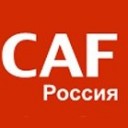The first Emerging markets philanthropy forum took place in Russia in July 2013, hosted by the Russian Donors Forum. The second forum held in Beijing last week built on the enthusiasm and feeling of common space generated in St.Petersburg. The forum brought together about 60 philanthropy professionals from over 20 countries and all continents but Australia. Participants came from various institutions – private and corporate foundations, companies, community philanthropy and support institutions and NGOs. The Forum was hosted by China Foundation Center – a watchdog and membership organization serving foundations in China, that celebrated its 5th anniversary on the same week. The Forum was also a venue where finalists and the winner of the third Olga Alexeeva Memorial Prize were celebrated.
Olga was probably among the first people who championed the emerging markets philanthropy as a distinguished phenomenon. Discussions at the forum showed that it is a rapidly developing and vibrant field – not without challenges and internal contradictions that would to a large extend shape its future development. I would like to share a few observations provoked by the forum.
Distinctive from what? Many participants of the forum stressed that emerging markets philanthropy was different from the ‘Anglo-Saxon model’ which is felt to be dominating the discourse and that ‘we need our own model’ that would fit local culture of giving This new discourse for the emerging markets is still to be developed.
Language barrier. It appears that one of the issues is a lack of language that would be fully relevant for this space. Participants of the forum commented on irrelevance of the word ‘philanthropy’ which in some countries such as Brazil is associated with old-fashioned charity, while its preferred substitute ‘private social investment’ is felt to be too corporate. Getting stuck with definitions is not very productive. Still it is critical to be aware of nuances associated with the language used, and consequences of wording that may be quite real.
Common space versus individual giving cultures. Although we regard emerging markets philanthropy as relatively new, giving cultures in emerging market countries go back centuries. In many cases they suffered from times of disruptions caused by communist or military regimes, dictatorship etc. but philanthropy that is developing now is somehow infused with this giving cultures that should be preserved and cherished.
Driving force. As one of the participants remarked, the fundament driving force for this new wave of philanthropy development is a tension between rapid economic growth and accumulation of wealth, and growing inequality and lack of adequate social policy. China where the forum took place, with multiple digit growth of the number of foundations and their assets, is a vivid illustration to this statement.
Immature infrastructure and institutions. With the record growth speed of the sector, the fundamental structures are somewhat lacking behind. There is a deficit of knowledge, transparency, ethics, and other types of stakeholders – think tanks, watchdogs, professional associations, research and teaching institutions that would drive the quality of this giving to go with quantity.
Where is civil society in the picture? Interestingly enough, it appears that many donors do not regard civil society as part of philanthropic ‘ecosystem’ (that was an over-popular word both at the forum and the subsequent annual conference of China Foundation Center). Lack of trust to institutions in general and NGOs in particular throughout emerging markets leads to the situation when foundations and other donor organizations choose ‘direct assistance’ strategies. In their view it would eliminate the possibility of abuse of funds or money not reaching final beneficiaries. This is of course is one of the reasons of the viscous circle that does not allow organizations to develop their capacity and become more capable and trustworthy.
Government as a center piece and a figure of silence. It was not a surprise that governments play an essential role vis-a-vis philanthropy – both in good sense and bad. Regulation of philanthropic activities in all these markets is still in the making, and it suffers from lack of consistency and understanding of long-term consequences of various legislative moves, let alone multiple examples of putting serious limitations on the activities of both donors and their recipients. Still it was fascinating to see that the session on philanthropy and governments was the least popular, and participants were not focused on government’s role and lack of supportive legislation.
Beyond money. Assets other than money were widely discussed at the forum, thanks to the broad representation of community philanthropy field. It would not be an overstatement to say that growth of community philanthropy in emerging markets is a distinctive trend. Those organizations are not necessarily a result of wealth creation but rather of people’s willingness to take their lives in their hands and look for solutions rather than complain about problems. It is distinctive that this movement involves societies with very strong paternalistic cultures and now spreads to rural areas which are usually poorer parts of any country.
Help versus change. The forum manifested not only institutional and geographic diversity but also different approaches to giving. While some of the participants were talking about structural challenges that have to be addressed to create change, building local capacity and importance of rights based work, others were very proud of giving out dentures. And although the crowd that attended the forum was from a progressive camp in its majority, it would be fair to say that long-lasting social change is not dominating the agenda of emerging market donors – just as in mature philanthropic cultures.
Value of peer learning and sharing successes. This is I think what people liked the forum for mostly. It appears that despite many differences and local specificities there is a huge value in tapping in other people’s and countries experience – both in search for working models and approaches and for moral support and empowerment. After all, it was felt that emerging market countries have much in common, and facing challenges and seizing opportunities together would make the sector better and stronger.
Maria Chertok is director of CAF Russia.




Comments (1)
Dear Masha, what a great summary! The Emerging Market Philanthropy Forum is a milestone in Chinese and global philanthropic sector. It starts building bond between differenct emerging countries.